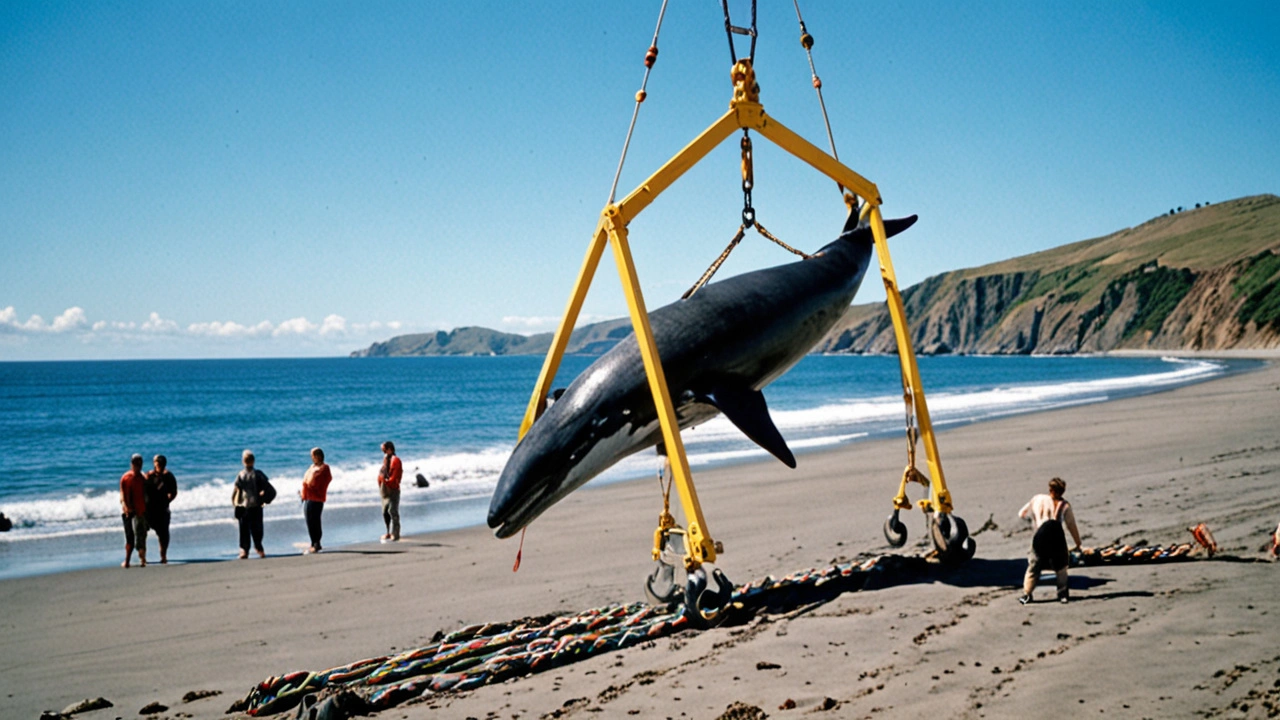Spade-toothed whale — what you need to know
The spade-toothed whale (Mesoplodon traversii), sometimes called Travers' beaked whale, is one of the ocean’s rarest and most mysterious animals. You probably won’t see one from shore. They live far offshore, dive deep, and very few specimens or sightings are on record. That makes every sighting valuable for science and conservation.
So what makes this whale different? Like other beaked whales, it has a slender, dolphin-like body, a sloping forehead, and a beak. Males develop unusual teeth that can stick out and shape the jaw — this is where the name “spade-toothed” comes from. But at sea these details are hard to spot unless you’re very close or have sharp photos.
Where they live and what they eat
Records suggest the spade-toothed whale lives in cool to temperate southern waters — most finds are linked to places like New Zealand and parts of the South Pacific and southern oceans. They prefer deep waters off the continental shelf where they can dive for food. Their diet likely includes squid and deep-sea fish, the usual prey for deep-diving beaked whales.
How to spot one and what to do if you see it
Spotting a spade-toothed whale is rare, but these tips help you know what to look for: watch for a low, short dorsal fin well back on the body; look for a small, quick blow; and note a long, slender shape that disappears fast into the water. If you’re lucky enough to get close enough for photos, try to capture the head and any visible teeth or scars — those details matter to researchers.
If you see a spade-toothed whale or find a stranded individual, do these simple things: 1) Record the exact location (GPS if possible), date and time. 2) Take clear photos from a safe distance. 3) Do not attempt to move or touch the animal. 4) Contact your local marine mammal stranding network, coast guard, or a nearby museum or university with marine biology experts. Quick, accurate reports can help scientists learn more about distribution, health, and threats.
Why care? These whales are indicators of deep-sea health. Fewer sightings can mean we’re missing changes in ocean food webs or suffering unseen harms from noise, fishing gear, or pollution. Even though we know little about them, simple actions by boaters, fishers, and beachgoers can make a big difference.
Want to help beyond reporting sightings? Support organisations working on marine mammal research, avoid noisy, close approaches to whales, and back efforts to reduce ocean noise and bycatch. Every photo, report, or donation helps build the picture of this secretive species so we can protect it better.
Rare Spade-Toothed Whale Found on New Zealand Beach Ignites Scientific Curiosity
By Sfiso Masuku On 16 Jul, 2024 Comments (16)

A 16-foot spade-toothed whale has washed ashore on New Zealand's South Island, capturing the attention of the scientific community. This rare marine mammal, scarcely documented since the 1800s, offers researchers a unique chance to study its elusive habits and environment. The Department of Conservation, alongside local Māori, is handling the whale with cultural sensitivity while gathering crucial data to aid conservation efforts.
View More




